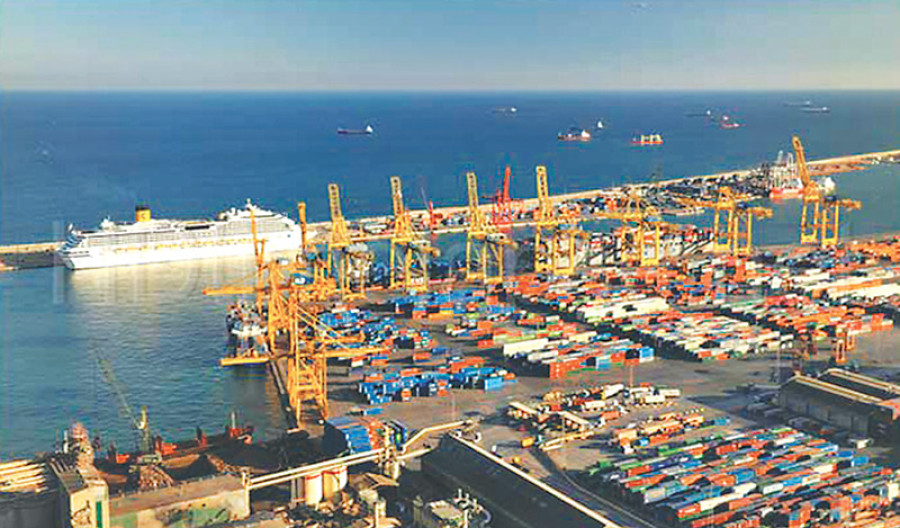Money
India urges Nepal to set up consulate in Visakhapatnam
India has called on Nepal to open consul general’s office at Visakhapatnam to facilitate works related to cargo clearance from the seaport in the Indian state of Andhra Pradesh.
Kamal Dev Bhattarai
India has called on Nepal to open consul general’s office at Visakhapatnam to facilitate works related to cargo clearance from the seaport in the Indian state of Andhra Pradesh.
The call echoes the demand of Nepali freight forwarders, who are expressing reluctance to use the deepwater port in Visakhapatnam, because of lack of a proper government office there.
The port in Visakhapatnam has emerged as an alternative port for landlocked Nepal to conduct third-country trade. Nepal, at present, heavily relies on Haldia Port near Kolkata to export and import goods to and from third countries.
“The Visakhapatnam port is now open for Nepal. It is necessary to open an office here as soon as possible to facilitate the cargo-handling process,” MT Krishna Babu, chairman of the Visakhapatnam Port, told a programme held at Visakhapatnam on Tuesday.
If there is an office in Visakhapatnam, Babu said, the cargo clearance works could be expedited. Currently, the Nepali Embassy in New Delhi is handling all works related to the port, including document processing, from the Indian capital. The embassy takes around 24 hours to complete all these works.
“This port should be used more often by Nepal because processes here are more transparent and no additional charge is levied,” said Babu, who has previously served as the chairman of the port in Haldia. “Also, Haldia port takes more than a week to dispatch cargoes.”
India had agreed in principle to allow Nepal to use the Vishakhapatnam Port in 2009. But a final agreement could not be signed at that time, as Nepal opposed to the double-lock system that India implemented on Nepal-bound cargoes.
Nepal finally got the permission to use this port for third-country trade during former Prime Minister KP Sharma Oli’s visit to New Delhi in February 2016. Then, last year, Nepal and India exchanged letters to make use of the port.
One of the attractions of this port, unlike the one in Haldia, is that is it deepwater. This means the port can handle bigger cargo vessels, reducing ocean freight cost.
Haldia Port, on the other hand, cannot handle larger cargo vessels because of its shallow water. So, cargoes have to be transferred to smaller vessels in Singapore or Colombo, Sri Lanka, before they are shipped to Kolkata. This increases the cost of trading. Yet the drawback of Visakhapatnam Port is the distance from Nepal, which stands at around 1,436 km. The port in Haldia, on the other hand, is located at a distance of around 704 km from Nepal.
“Kolkata port is nearer to Nepal. But the port in Visakhapatnam offers lots of facilities,” Babu told the programme which was also attended by Nepali Ambassador to India Deep Kumar Upadhyay.
Other Indian officials also suggested that Nepal hold meetings with businessmen so that their problems could be resolved and the port becomes useful to them.
Achyut Wagle, an economic analyst, however, said: “For this port to become attractive for Nepalis, it must be able to negate extra cost that freight forwarders have to pay because of the distance between Nepal and the port, which is 700 km more than Kolkata.”




 9.83°C Kathmandu
9.83°C Kathmandu















